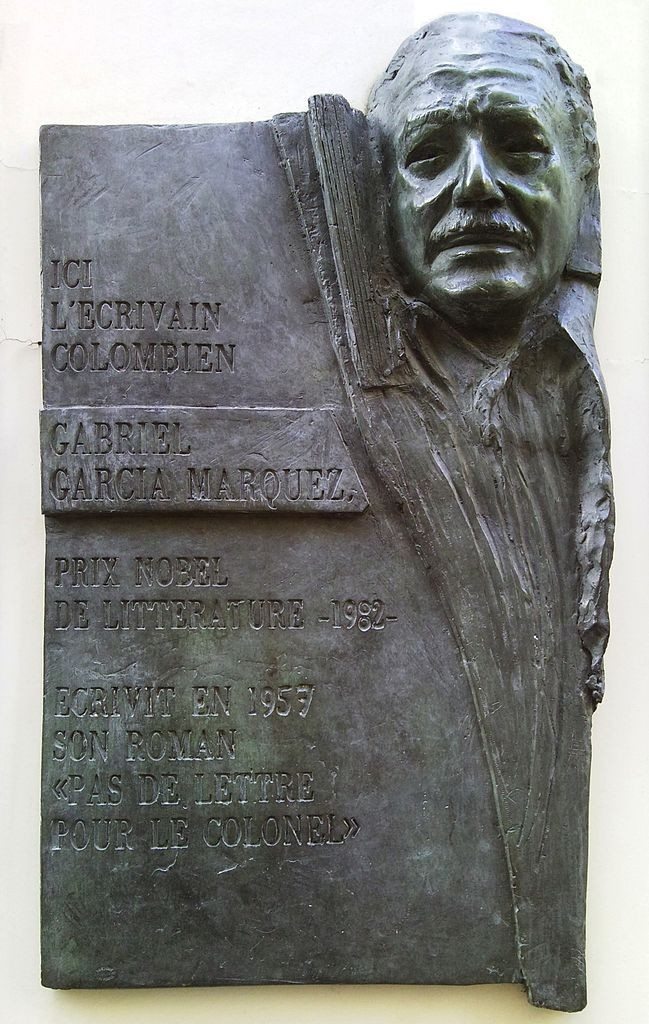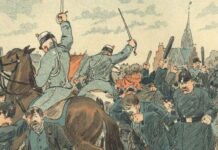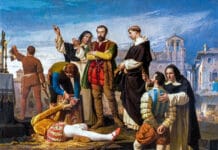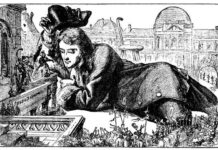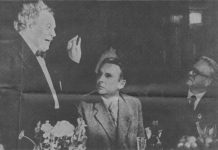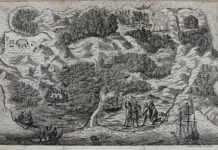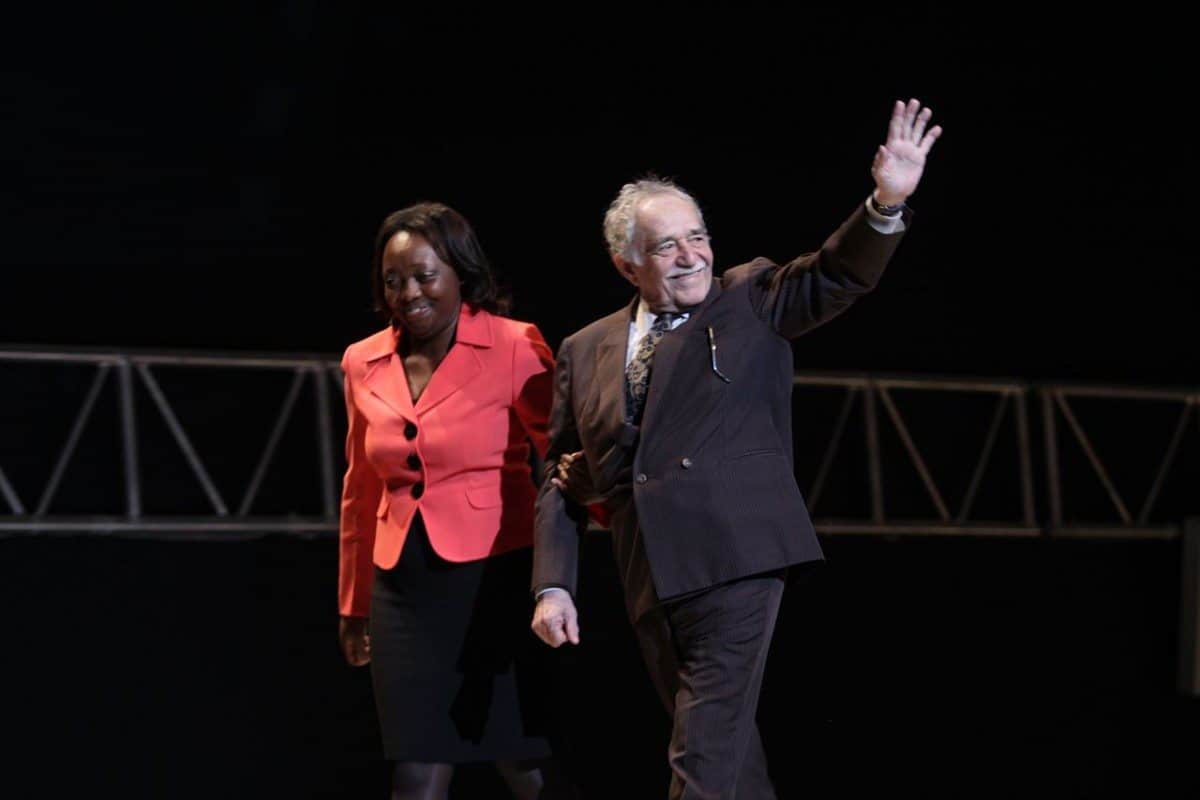
Den colombianske forfatter Gabriel José García Márquez døde 17. april 2014 i Mexico City. Han blev født i Aracataca, Colombia. Nobelprisen i litteratur 1982 for sit hovedværk, romanen »100 års ensomhed« (1967, på dansk 1969).
Leksika/Encyclopedias:
- Márquez, Gabriel Garcia (Leksikon.org)
- Gabriel Garcia Márquez (Denstoredanske.dk)
- Gabriel Garcia Márquez (Litteratursiden)
- Gabriel Garcia Márquez (Wikipedia.no) + endnu kortere dansk artikel.
- Gabriel Garcia Márquez (Wikipedia.org). Long article in English, marked as “a good one”, and link to the longer one in Spanish.
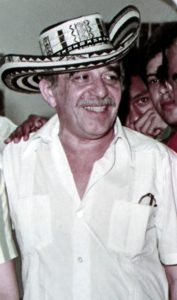
Nekrologer/Obituaries etc.:
Gabriel García Márquez, Nobel author of 100 Years of Solitude dies at 87 (Havana Times.org, April 17, 2014)
Gabriel García Márquez. By Gene H. Bell-Villada (Against the Current, Issue 171, July-August 2014). “His magic and humor mingled freely with labor strikes and cruel dictatorships, romantic love and ribald sex.”
Gabriel García Márquez: A giant in the literature of the Americas. By Rafael Azul (World Socialist Web Site, 14 May 2014). “… in his artistic representations, García Márquez speaks honestly to Colombia’s (and Latin America’s) complex and contradictory social make-up.”
Gabriel García Márquez. By Simon Assaf (Socialist Review, Issue 391, May 2014). “Marquez is renowned for a style of work known as Magical Realism, where the supernatural and the mundane merge. His books are a metaphor for imperialism, dictatorship and struggle.”
Gabriel García Márquez – 1927-2014: legendary left-wing novelist remembered. By Raul Connolly (Green Left Weekly, Issue 1006, April 26, 2014). “For decades Garcia Marquez was denied a visa to travel to the US, until then-president Bill Clinton lifted the ban in 1995.”
Gabriel García Márquez: a rebel against form, an artist against the forces of oblivion. By Greg Grandin (The Nation, April 21, 2014). “He taught us how to live with loss, and he told us, over and over again, that other utopias are possible.”
Gabriel Garcia Marquez 1927-2014 (Socialist Worker, Issue 2399, 21 April 2014). “Mike Gonzalez looks at the significance of the anti-imperialist giant of Latin American literature.”
Gabriel García Marquez: much more than magical realism. By Matt Car (Red Pepper, April 2014). “This concern with Latin American history, and the willingness to give voices to the voiceless, were essential components of Márquez’s work.”
García Márquez is gone, but not the world he described. By Chris Gilbert (CounterPunch, April 21, 2014). “According to one line of thought, Garcia Márquez invented the genre of realism. This is false and political dangerous.”
Gabriel García Márques in his own words on writing ‘100 Years of Solitude’ (DemocracyNow.org, April 18, 2014). Video, 27:19 min. + followed by: “He Gave Us Back Our History”: Isabel Allende on Gabriel García Márquez in exclusive interview (- 58:56 min.)
Gabriel García Márquez: magic and memory (RS21: Revolutionary socialism in the 21st century, April 22, 2014) looks at what made the work of Gabriel García Márquez so affecting.”
Communist or Anti-Imperialist?: The personal politics of Gabriel Garcia Márquez (pdf). By Lydia Nilsen (Agora, 2006; online at Internet Archive). “Upon exploration, one will understand that García Márquez does not fully embrace extreme leftist politics, but rather he only wishes to eradicate oppression of his Latin American people.”
Writers reviewed: Gabriel Garcia Marquez. By Mike Gonzalez (Socialist Review, Issue 207, April 1997; online at Internet Archive). “Márquez’s ‘magical realism’ testifies to the vitality of a popular consciousness that can see beyond an imprisoning reality and preserve a spirit of resistance in its songs, its jokes, its myths, which continually imagine a world turned upside down.”
Gabriel Garcia Márquez, 1927–2014 (Verso, Blog, 17 April 2014; from New Left Review, No.138, March-April 1983, p.5-10). “Here we present a full 1983 interview entitled ‘Our Own Brand of Socialism’.”
